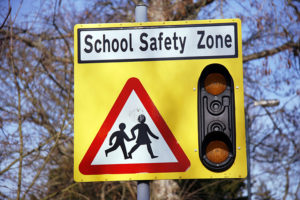States submitting plans to the U.S. Department of Education to comply with the Every Student Succeeds Act are opting not to measure social-emotional learning as part of school performance metrics.


States submitting plans to the U.S. Department of Education to comply with the Every Student Succeeds Act are opting not to measure social-emotional learning as part of school performance metrics.
The decision stems in part from the difficulty of measuring important character traits and interpersonal skills like cooperation, respect, and empathy, though groups like The Jubilee Centre are making strides in assessing character education in local schools.
Two years after Congress adopted the Every Student Succeeds Act, not a single state has submitted a plan to comply with the federal law that incorporates social-emotional learning into state measures for school accountability systems.
According to Education Week:
Schools that adopt social-emotional learning seek to nurture students’ development in areas like self-management and responsible decision making alongside traditional academics. Doing so helps to deepen students’ learning experiences and prepares them for interpersonal situations they will later face in the workplace, educators say.
As the U.S. Department of Education works to approve states’ ESSA plans, some of social-emotional learning’s biggest boosters are expressing relief that states are steering clear of trying to measure such personal skills for accountability.
“There is a groundswell of recognition that the academic, social, and emotional development of children are intertwined in all experiences of learning,” Tim Shriver, co-founder of Collaborative for Academic, Social, and Emotional Learning (CASEL), told the news site. “I think that’s booming . . . Someone might say, ‘Why aren’t you holding states accountable for teaching it?’ The answer to that is we are not ready for it yet.”
Current measures of social and emotional development consist mostly of student surveys in which they self-report on their own character traits, which makes it difficult to comply with ESSA regulations that require “meaningful differentiation in school performance” that are “valid, reliable, comparable, and statewide.”
Joseph E. Davis, an associate professor of Sociology at the University of Virginia, highlighted the difficulty of “Measuring Virtue in the Audit Society” for The Hedgehog Review, a journal on interdisciplinary topics published by the Institute for Advanced Studies in Culture.
“The very act of creating measures and benchmarks and rating scales can badly distort the nature of the thing being audited, throwing off all sorts of unintended consequences. Far from a merely derived and neutral activity, auditing and performance measurement can construct a system of knowledge and then re-shape the organizational environment to make that system successful. More germane to virtue is the distinct possibility that because the disposition itself is not readily amenable to verifiable, non-subjective measurement, what will be quantified is simply some aspect that is easy to count, often a crude and not very meaningful aspect at that,” Davis wrote.
“This aspect, because verifiable and thus more tractable and ‘real,’ then gets confused with the thing itself. Virtue becomes, as one of the speakers at (a January conference on character at Oriel College, Oxford) argued, ‘what virtue tests test,’” Davis continued.
“I recently heard a social scientist argue that when it comes to measuring morality any measure is better than none, an at-least-we’re-counting-something view . . . But surely, in light of the dynamics of real-world assessment practices, such a facile view is deeply mistaken. Only a very good measure is better than none,” Davis wrote.
And while experts argue that good measures of character and social emotional learning “are not ready for prime time,” as Louisiana State Superintendent John White told Education Week, the Jubilee Centre and others are providing excellent resources for schools to develop their own means of evaluating character education programs on a local level.
The Centre’s “Character Education Evaluation Handbook For Schools,” for example, “is intended to be a source of inspiration that schools should adapt their own context” based on “the premise that by using varied forms of self-evaluation teachers can develop a holistic and formative picture of their school’s character-education profile.”
The handbook is broken down into four sections, and takes educators from planning an evaluation, to developing a self-evaluation framework, evaluating curriculum strategies and activities, and eventually how “students’ self-reflection can support the development of character and more specifically practical wisdom.”
The handbook also provides examples of different approaches to student self-reflection on character currently in use by schools, according to The Jubilee Centre website.